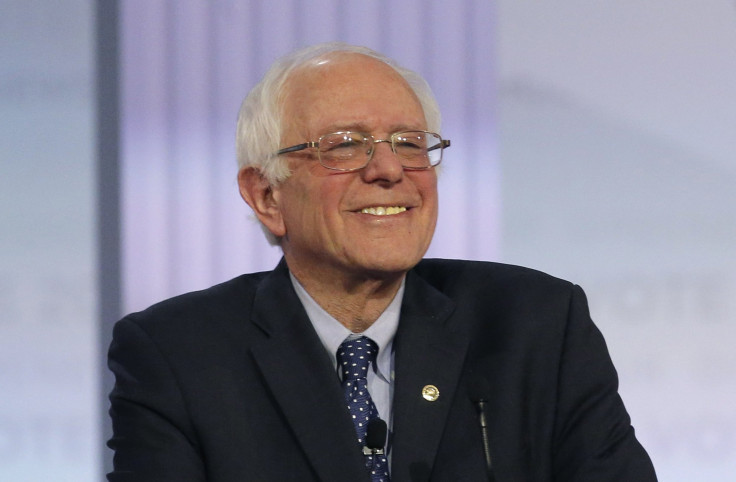Bernie Sanders 'Presumptuous' On Race Relations, Congressional Black Caucus Member Says

A leader of the Congressional Black Caucus questioned Democratic presidential candidate Bernie Sanders’ ability to deal with race relations in the United States Friday. Rep. Hakeem Jeffries, a New York Democrat and caucus whip, told CNN it was “a bit presumptuous” for Sanders to say he is the best candidate to improve race relations in the United States.
“I thought that was a very simplistic answer to a very complicated problem,” Jeffries said in a CNN interview. “Under the Obama administration, we've had 71 consecutive months of private sector job creation. More than 14 million jobs have been created. He's done a tremendous job — meaning President Barack Obama. But we still have some issues related to race relations that have to be tackled.”
The supporter of Hillary Clinton, Sanders’s opponent for the Democratic nomination, continued: “I think it seemed a bit presumptuous to me to conclude that Bernie Sanders in the twilight of his career was going to be able to be the great healer in race relations.”
The comments come after Sanders was asked during Thursday night’s Democratic debate if race relations would be better under a Sanders presidency than they have been. Sanders replied, “Absolutely.”
During the debate, Sanders spoke several times about race relations and reforming the country’s criminal justice system, but his answers largely involved economic solutions that stuck close to his regular talking points.
“Because what we will do is say, instead of giving tax breaks to millionaires, we are going to create millions of jobs for low-income kids so they're not hanging out on street corners,” Sanders said about what he would do to improve race relations.
Some critics expressed doubt about his answer Thursday night as well. Clinton campaign spokesman Brian Fallon tweeted skeptically in response to the Sanders answer during the debate.
Now Sanders is promising to do more to improve race relations than President Obama? #DemDebate
— Brian Fallon (@brianefallon) February 12, 2016
The criticism from Jeffries comes just one day after the Congressional Black Caucus PAC endorsed Clinton, leading some caucus members and Sanders supporters who disagreed with the decision to express frustration on Twitter.
After Rep. John Lewis, also a member of the caucus, criticized Sanders record of involvement in the civil rights movement, Sanders supporters took to Twitter to criticize the civil rights leader. These back-and-forth attacks reflect the intense efforts of the Democratic candidates to recruit high profile African-American endorsements and win over black voters as they head toward the South Carolina primary election later this month.
Now that Sanders and Clinton are past the very white states of Iowa and New Hampshire, the next nominating contests will take place in states with significantly more diverse electorates. Many Latinos are expected to turn out for the Nevada caucuses Feb. 20, and South Carolina and other southern states have typically had many African-Americans participate in their primaries.
© Copyright IBTimes 2025. All rights reserved.






















